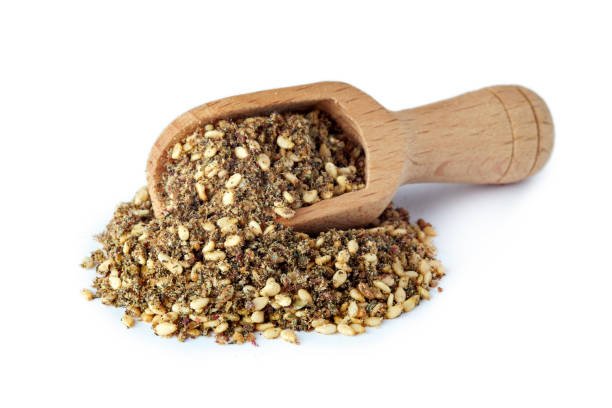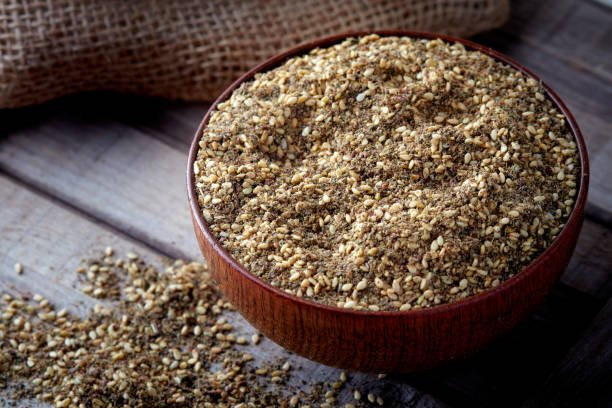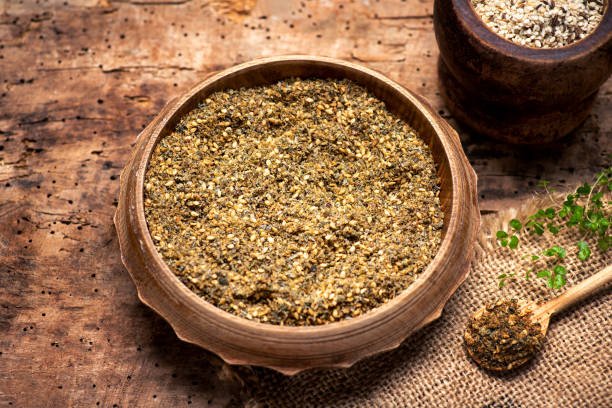Marjoram (Origanum majorana) is a perennial herb in the mint family (Lamiaceae), native to the Mediterranean region. It grows as a small, bushy plant with soft, ovate, gray-green leaves and produces small, white or pale pink flowers in clustered spikes. The plant typically reaches a height of 30–60 cm (12–24 inches). Marjoram has a sweet, citrusy, and slightly spicy aroma, and is commonly used as a culinary and medicinal herb.
Shape: Small, oval to slightly round.
size: Approximately 1 to 1.5 mm in length.
Color: Dark brown to grayish-black.
Texture: Hard and smooth surface.
Specific Gravity: Relatively light; immature seeds may float in water.
Taste and Odor: Generally tasteless and odorless when dry, but may release a mild herbal aroma when crushed, similar to the parent plant.
Essential Oils:
Contain volatile oils such as terpinen-4-ol, sabinene hydrate, linalool, thymol, and carvacrol, though in lower concentrations compared to the leaves.
Phenolic Compounds:
Includes flavonoids, rosmarinic acid, and caffeic acid, which contribute to antioxidant properties.
Fatty Acids:
Seeds contain fixed oils with linoleic acid, oleic acid, and palmitic acid as primary fatty acids.
Proteins and Amino Acids:
Moderate protein content with essential amino acids present.
Carbohydrates:
Contains simple sugars and dietary fiber in small amounts.
Minerals:
Rich in minerals such as calcium, magnesium, potassium, iron, and phosphorus.
Saponins and Tannins:
Present in trace amounts, contributing to the plant’s medicinal effects.
Nutritional Information ( per 100g – approximate values):
Energy :~350–400 kcal
Proteins:18–22 g
Fats: 12-18g
Carbohydrates:40–50 g
Dietary Fiber: ~30–35 g
Sugars: ~1–3 g
Vitamins: Vitamin C Vitamin A (beta-carotene) Vitamin K Folate B-complex vitamins (like B6, riboflavin, niacin)
Minerals: Calcium: ~2000 mg Iron: ~80 mg- Magnesium: ~350 mg Potassium: ~1500 mg
Zinc, Manganese, Phosphorus – present in smaller amounts
Water content: ~7–10%
Quality standards;
“Compliant with local and European standards according to food safety regulations.”
Purity: Minimum 98%, free from foreign matter.
Moisture Content: Not more than 8%.
Germination Rate: At least 85%.
Health: Free from pests, diseases, mold, and damage.
Uniformity: Consistent size, shape, and color.
Odor & Appearance: Natural aroma, no off-smell or discoloration.
Packaging: Clean, labeled, export-compliant bags.
Phytosanitary Certificate: Required for international trade.
Residue Limits: Must meet MRLs for pesticides and contaminants.
Storage: Cool, dry, hygienic conditions.
Microbiological standards:
Total Plate Count (TPC): Should not exceed 10⁵ CFU/g (colony-forming units per gram).
Yeasts and Molds: Maximum allowed is 10³ CFU/g.
Coliforms: Should be less than 10² CFU/g.
Escherichia coli (E. coli): Absent in 1 g of sample.
Salmonella spp.: Absent in 25 g of sample.
Staphylococcus aureus: Should not exceed 10² CFU/g, or absent in some export markets.
Clostridium perfringens: Should be less than 10² CFU/g.
Aflatoxins (B1, B2, G1, G2): Must comply with Codex or destination country limits, usually <10–20 ppb (µg/kg) total aflatoxins.
Packaging and Storage
. As per the customer’s request, polypropylene bags and cartons.”
Store in a cool, dry, well-ventilated area.
Keep humidity below 60%.
Use pallets to prevent direct floor contact.
Shelf Life :
Marjoram seeds typically have a shelf life of 1 to 2 years when stored under optimal conditions. To maintain their quality, they should be kept in a cool, dry, and dark place in airtight containers, away from moisture and sunlight. The germination rate may decrease over time, so it is recommended to use the seeds within the first year for the best results.
Traceability and compliance:
Origin ; Egypt
Application:
They can be ground and added as a spice to enhance the flavor of soups, stews, sauces, and marinades. Their aromatic and slightly sweet flavor makes them a good addition to various recipes.
Medicinal Purposes:
Traditionally, marjoram (including its seeds) has been used in herbal medicine. It may be brewed into teas or extracts to help with digestion, relieve respiratory issues, and promote relaxation. However, it’s important to consult a healthcare professional before using them for medicinal purposes.
Aromatherapy and Fragrance:
The seeds contain essential oils that can be extracted and used in aromatherapy products, such as essential oils or incense, providing a calming and soothing aroma.
Cosmetic Applications:
Extracts from marjoram seeds can also be incorporated into skincare products for their potential antioxidant and anti-inflammatory properties.
Contact information:


